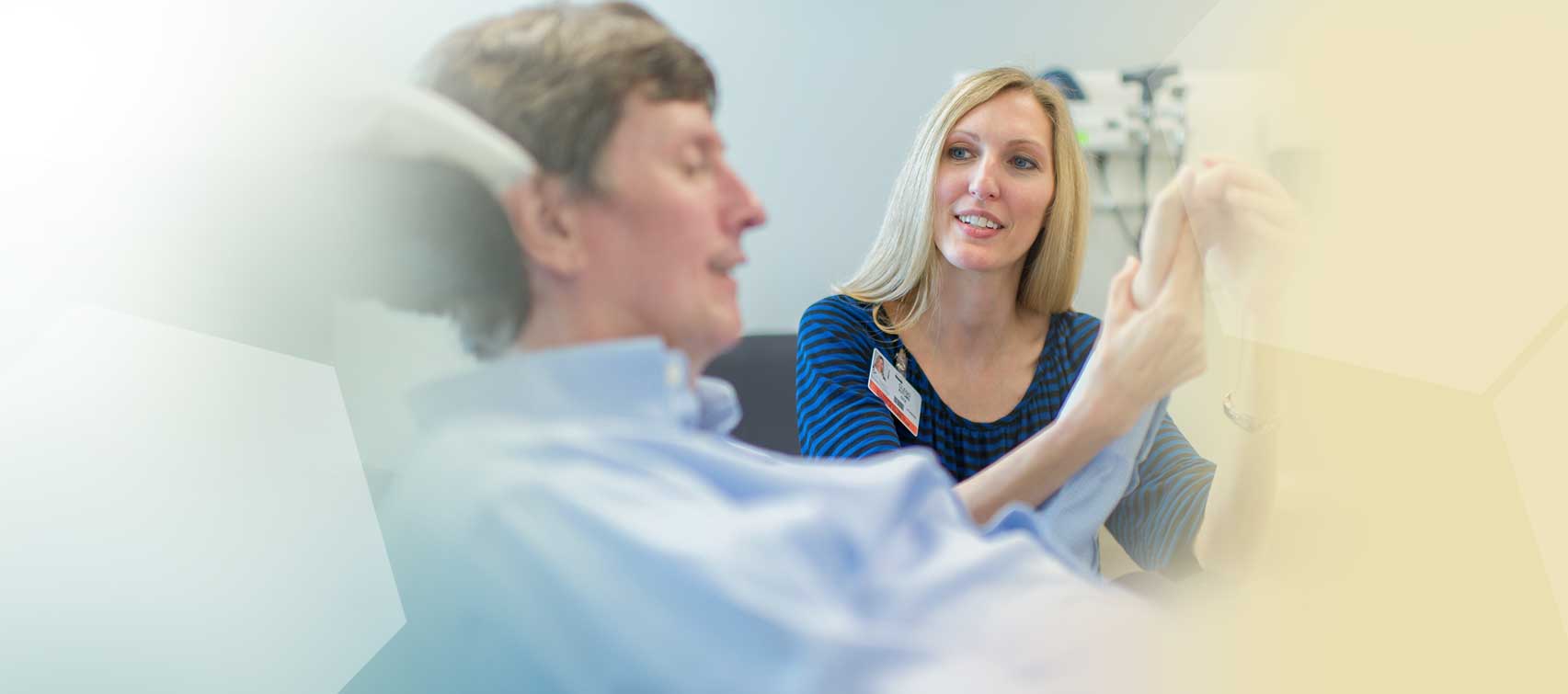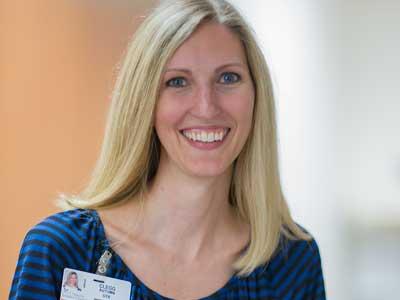“In the end, it’s not the years in your life that count. It’s the life in your years.”
This oft-repeated inspirational phrase truly resonates with Autumn Clegg, assistant clinical professor of occupational therapy in the School of Health Professions. She is reminded of the phrase every time she walks into the South Texas Amyotrophic Lateral Sclerosis (ALS) Clinic of UT Health San Antonio, which is the clinical practice of the School of Medicine at The University of Texas Health Science Center at San Antonio. And, as an occupational therapist, Clegg is fulfilling her lifelong dream of making a difference in the lives of her patients.
Helping maintain a good quality of life
“I want to give our patients a sense of hope and – more than anything – help them maintain a good quality of life,” Clegg said. “When patients who are diagnosed with ALS start to lose their independence, it can be discouraging. I make a point to listen to their struggles and find ways to encourage them. What I do as an occupational therapist allows me to work with individuals and what is meaningful for them in their own lives.”
ALS is a progressive disease that affects nerve cells in the brain and spinal cord. As these nerve cells die, patients have difficulty controlling muscle movement and eventually become paralyzed. There is no cure.
“There are days when I leave the clinic feeling like I learned more from my patients than they learned from me,” Clegg said. “So many of them are amazingly hopeful and really know how to make the best of each day.”
Using skills learned from her undergraduate studies in psychology and biology, Clegg believes that building a therapeutic rapport is crucial to enabling her patients and caregivers to feel comfortable enough to ask for support.
“Understanding the unique needs of patients with ALS is the strength of our clinic,” Clegg said. “Often I provide a listening ear and a sense of hope. I want them to know that I genuinely care for them.”
To many patients who are trying to cope with losing independence, Clegg provides the positivity and encouragement they need. Mark Spiekerman, one of Clegg’s patients, was diagnosed with ALS in 2007.
“ALS robs individuals of their independence,” Spiekerman said. “Autumn works to help us maintain our quality of life through modifications around the house or products that assist in overcoming our physical inabilities. This has been instrumental in maintaining our dignity.”
Spiekerman said he has worked with several occupational therapists since being diagnosed with ALS almost seven years ago. Because Clegg takes the time to care about him, she discovers information from his experience that can help other patients.
“She has brought countless creative suggestions to us to help us in our struggles,” Spiekerman said.
A multidisciplinary approach
Clegg works in the ALS multidisciplinary clinics on a weekly basis to meet with her patients and provide them with support. “We use a multidisciplinary team approach where, in one clinic day, patients see all of their health professionals: neurologist, occupational therapist, physical therapist, speech therapist, respiratory therapist, dietician, social worker and medical equipment specialists. It is a one-stop shop,” Clegg said.
The South Texas ALS Clinic and the Muscular Dystrophy Association (MDA) Clinic are both led by Carlayne Jackson, M.D., FAAN, professor of neurology and otolaryngology in the School of Medicine. The ALS clinic is currently the only ALS Certified Center of Excellence in the South Texas area, according to the ALS Association. The MDA/ALS clinics have been designated as one of 38 MDA/ALS Research Centers in the country.

